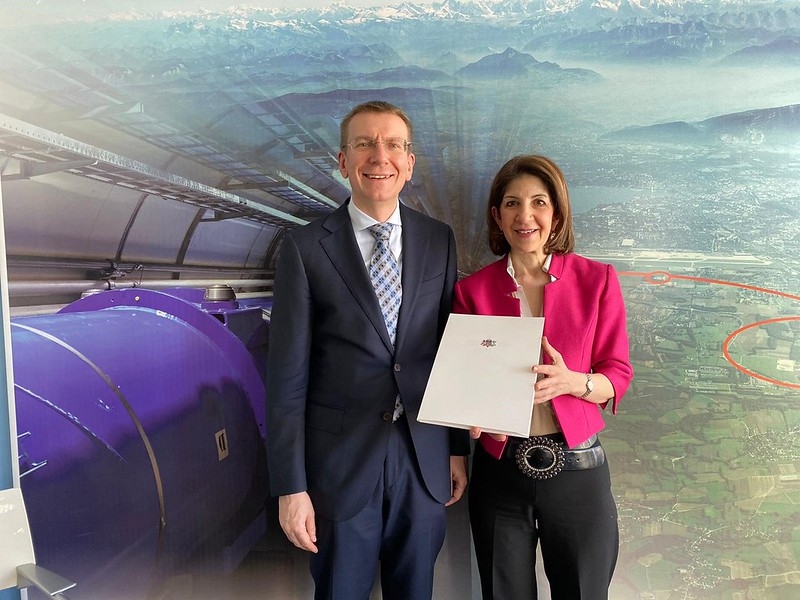On 24 February 2020, in Meyrin, Canton of Geneva, the Minister of Foreign Affairs of Latvia, Edgars Rinkēvičs, submitted a letter signed by the Latvian Minister of Education and Science, Ilga Šuplinska – Latvia’s application for membership in the European Organization for Nuclear Research, in the presence of Fabiolai Gianotti, Secretary of the CERN Council and the organisation’s Director-General.
The Foreign Minister expressed the conviction that Latvia has gathered competence in science, and in high-energy particle physics in particular. Latvian scientists have been involved in CERN projects and have been providing their contribution over the past 20 years, said the Minister. A common understanding has been achieved among scientists, businesses and public authorities, and an effective cooperation platform has been set up. Government decisions demonstrate long-term political support for CERN. By fulfilling those conditions, we are prepared to join the organisation as an Associate Member State, Edgars Rinkēvičs said.
Background information
The European Organisation for Nuclear Research (CERN) is an international organisation operating for the most part in research on particle physics. It was established in 1954 by 12 European countries. CERN currently has 23 Member States – Austria, Belgium, Bulgaria, the Czech Republic, Finland, France, Germany, Greece, Hungary, Israel, Italy, Netherlands, Norway, Poland, Portugal, Romania, Serbia, Slovakia, Spain, Sweden, Switzerland, and the United Kingdom. Cyprus and Slovenia are in the pre-stage to Membership; Croatia, India, Lithuania, Pakistan, Turkey and Ukraine are Associate Member States.
In 2019, the Latvian Government supported Latvia becoming an Associate Member State of the organisation from 2021 onwards. CERN’s main function is to provide the particle accelerators and other infrastructure needed for high-energy physics research. CERN hosts a large computing facility processing data from experiments, and it also happens to be the birthplace of the World Wide Web.





